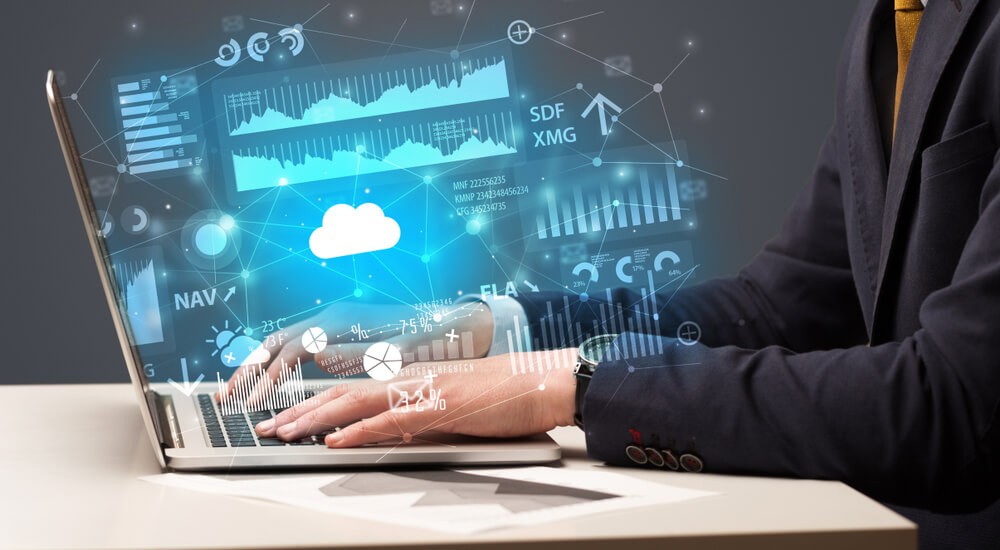Security is often the first concern business owners have when adopting cloud accounting software. Many SMEs in Malaysia still hesitate to switch from traditional desktop tools because they worry about data safety, control, or the risk of cyberattacks. But how much of this is true, and how much is based on common misconceptions? Let’s separate the myths from the facts so you can make an informed decision.
How Does Online Accounting Work?
Online accounting works by moving your financial data away from your office computer and into a secure cloud environment. Instead of installing heavy software onto a single desktop, businesses simply log in through a web browser or mobile app. This setup gives teams and accountants the ability to work on the same set of numbers at the same time, without emailing files back and forth.
Most cloud accounting software also connects directly with banks and payment platforms. This means your income and expenses can be updated automatically, reducing the need for manual entry and minimizing errors. Because everything is stored centrally, business owners can generate reports, check cash flow, or approve invoices on the go—whether they’re in the office, meeting a client, or even traveling abroad.
This always-on accessibility is what makes cloud systems so different from traditional accounting tools. Instead of waiting to sit down at a particular computer, businesses get an always-synced, real-time view of their financial health.
Cloud Security Measures You Can Trust
Top cloud accounting platforms are built with multiple layers of protection that most small businesses could not replicate on their own. Common safeguards include:
- Encryption: All data is encrypted, meaning sensitive information is scrambled and unreadable to unauthorized parties.
- Multi-Factor Authentication (MFA): Users verify their identity through more than just a password, such as a code sent to their phone.
- Automatic Backups: Data is regularly backed up across multiple secure servers to prevent loss.
- Compliance Standards: Reputable providers comply with international standards like GDPR, ISO certifications, and local tax authority requirements.
- 24/7 Monitoring: Cloud servers are continuously monitored by IT specialists to detect and stop potential threats.
For example, when a retail SME in Kuala Lumpur lost its office laptop, all financial records remained safe and accessible in the cloud. This level of protection is far more reliable than depending on a single office computer with basic antivirus software.
Myths About Cloud Accounting Risks
Despite these protections, several myths still circulate among SMEs:
- Myth 1: “Data is safer on my own computer.”
In reality, desktops are vulnerable to theft, crashes, or malware. Cloud providers safeguard data with professional monitoring and redundant backups. - Myth 2: “Hackers can easily access cloud systems.”
Cloud platforms use bank-level security, advanced firewalls, and intrusion detection—far more than what most SMEs can set up internally. - Myth 3: “I won’t have control over my financial data.”
The truth is, your information always belongs to you. Cloud providers act as custodians, but you can export, back up, or share your records whenever you choose. - Myth 4: “Cloud accounting is too complicated.”
Leading platforms are built for business owners, not IT experts. The interfaces are intuitive, with plenty of support and training materials. - Myth 5: “Only large enterprises benefit from cloud accounting.”
In reality, small and medium businesses make up the majority of cloud users. Flexible pricing models keep it affordable, and the software can grow with your business needs. - Myth 6: “If the internet goes down, I’ll lose access forever.”
Downtime doesn’t erase your data. Once the connection is restored, everything syncs automatically. Some providers even offer offline features for basic use.
Why Security Matters More Than Ever for Malaysian SMEs
Cyberattacks on SMEs in Malaysia have been rising in recent years, with small businesses often targeted because they lack advanced IT defenses. This makes secure cloud solutions not just an upgrade—but a necessity.
With Malaysia moving toward mandatory e-Invoicing, cloud-based tools are no longer optional—they’re quickly becoming essential. Secure platforms don’t just protect your financial data; they also ensure compliance with government regulations, reduce IT costs, and give you the flexibility to scale.
👉 Explore secure cloud accounting software options in Malaysia here. This curated list compares leading tools so you can choose the right one for your business.
Conclusion
Cloud accounting security is often misunderstood. The truth is, leading providers invest heavily in technology and compliance to keep your data safe—often safer than storing it on a desktop computer. Ready to secure your business finances? Explore our comparison of the top cloud accounting software in Malaysia and choose a platform that keeps you safe, compliant, and competitive.
Adopting cloud accounting is not just about convenience—it’s about staying secure, compliant, and competitive in a fast-changing digital landscape.

